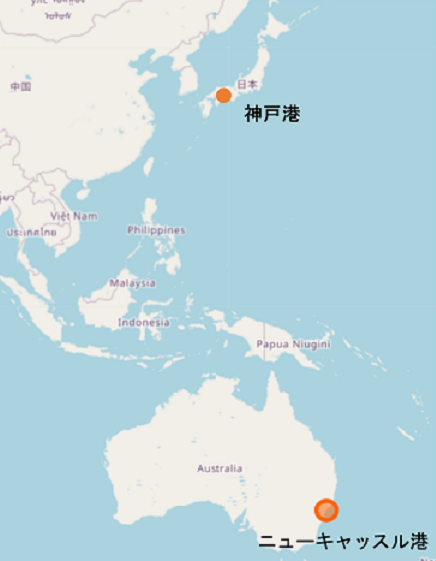NYK test sailing of bulk carrier using biodiesel

NYK test sailing of bulk carrier using biodiesel, Jointly implemented by three companies toward a decarbonized society
Last month, Nippon Yusen Kabushiki Kaisha (NYK), Asahi Kaiun Co., Ltd. of the Nippon Yusen Group, and Kobe Steel, Ltd., supplied biodiesel fuel to bulk carriers using the Ship-to-Ship method at Kobe Port (Hyogo Prefecture). The cargo carrier SUNRISE SERENITY, which is operated and managed by Asahi Kaiun and jointly owned by NYK Line for Kobe Steel Ltd., has been operated and managed by Toyota Tsusho Marine Fuel Co., Ltd. It was supplied with fuel and used on the route to the port of Newcastle, Australia. This test cruise was conducted by NYK Line, which has set a long-term goal of reducing greenhouse gas (GHG) emissions in its ocean shipping business of achieving net zero emissions by 2050. Asahi Kaiun, which aims to carbonize, and Kobe Steel, Ltd., which aims to create a sustainable society by promoting integrated efforts to create a low-carbon, recycling-oriented society, jointly worked together. This will contribute to the spread of the biofuel supply chain in the Setouchi area. Biofuels are fuels made from biologically derived organic resources (biomass), and are considered to emit virtually no carbon dioxide (CO2) during combustion. As the demand for reducing CO2 emissions from ships increases, biofuels are attracting attention as they can also be used in general heavy oil marine engines.

Going forward, NYK Line, Asahi Kaiun, and Kobe Steel, Ltd. will share the knowledge gained from this test cruise to promote efforts toward decarbonization.
(1)Ship-to-Ship method
A method of supplying fuel by having a fuel supply ship alongside a ship moored at a quay or pier, or a ship at anchor.
(2)Biodiesel fuel
A fuel refined by methyl esterification of vegetable oils and fats, and is expected to be an alternative fuel to petroleum-derived heavy oil and light oil.
(3) Biofuel emits carbon dioxide (CO2) when burned, but the raw material plant absorbs CO2 and reproduces biomass, so CO2 emissions in direct combustion are considered to be virtually zero. It is attracting attention as an alternative to fossil fuels that realizes "carbon neutrality".

Location map (©OpenStreetMap)

